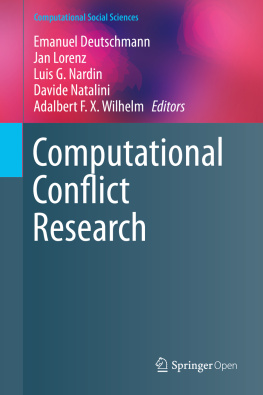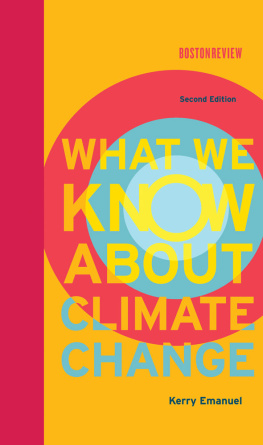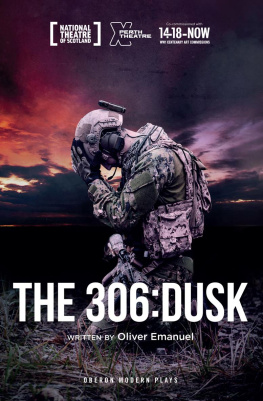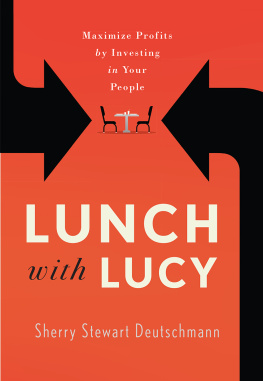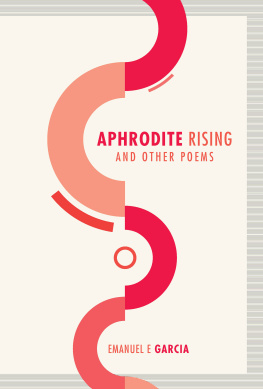Emanuel Deutschmann - Computational Conflict Research
Here you can read online Emanuel Deutschmann - Computational Conflict Research full text of the book (entire story) in english for free. Download pdf and epub, get meaning, cover and reviews about this ebook. year: 2020, publisher: Springer International Publishing, genre: Politics. Description of the work, (preface) as well as reviews are available. Best literature library LitArk.com created for fans of good reading and offers a wide selection of genres:
Romance novel
Science fiction
Adventure
Detective
Science
History
Home and family
Prose
Art
Politics
Computer
Non-fiction
Religion
Business
Children
Humor
Choose a favorite category and find really read worthwhile books. Enjoy immersion in the world of imagination, feel the emotions of the characters or learn something new for yourself, make an fascinating discovery.
- Book:Computational Conflict Research
- Author:
- Publisher:Springer International Publishing
- Genre:
- Year:2020
- Rating:5 / 5
- Favourites:Add to favourites
- Your mark:
- 100
- 1
- 2
- 3
- 4
- 5
Computational Conflict Research: summary, description and annotation
We offer to read an annotation, description, summary or preface (depends on what the author of the book "Computational Conflict Research" wrote himself). If you haven't found the necessary information about the book — write in the comments, we will try to find it.
Computational Conflict Research — read online for free the complete book (whole text) full work
Below is the text of the book, divided by pages. System saving the place of the last page read, allows you to conveniently read the book "Computational Conflict Research" online for free, without having to search again every time where you left off. Put a bookmark, and you can go to the page where you finished reading at any time.
Font size:
Interval:
Bookmark:
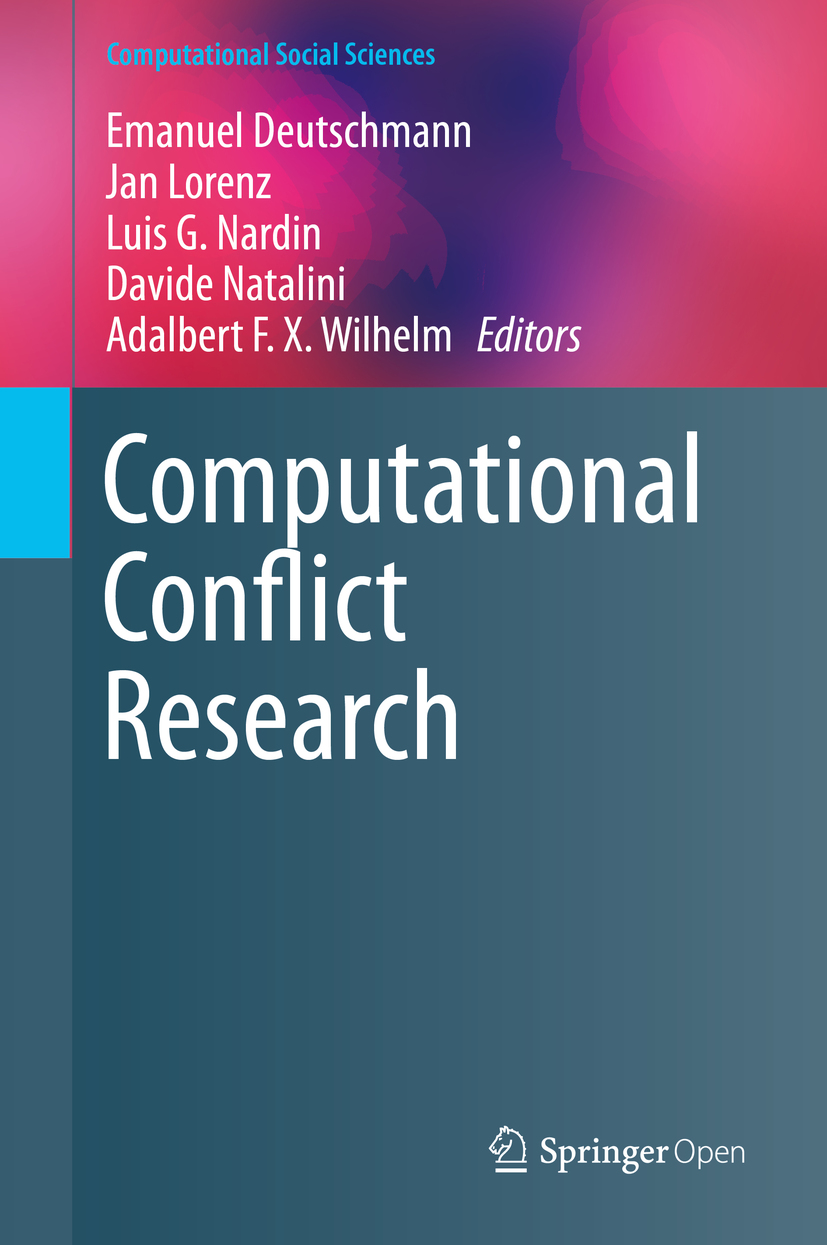
Computational Social Sciences
A series of authored and edited monographs that utilize quantitative and computational methods to model, analyze and interpret large-scale social phenomena. Titles within the series contain methods and practices that test and develop theories of complex social processes through bottom-up modeling of social interactions. Of particular interest is the study of the co-evolution of modern communication technology and social behavior and norms, in connection with emerging issues such as trust, risk, security and privacy in novel socio-technical environments.
Computational Social Sciences is explicitly transdisciplinary: quantitative methods from fields such as dynamical systems, artificial intelligence, network theory, agent-based modeling, and statistical mechanics are invoked and combined with state-of-the-art mining and analysis of large data sets to help us understand social agents, their interactions on and offline, and the effect of these interactions at the macro level. Topics include, but are not limited to social networks and media, dynamics of opinions, cultures and conflicts, socio-technical co-evolution and social psychology. Computational Social Sciences will also publish monographs and selected edited contributions from specialized conferences and workshops specifically aimed at communicating new findings to a large transdisciplinary audience. A fundamental goal of the series is to provide a single forum within which commonalities and differences in the workings of this field may be discerned, hence leading to deeper insight and understanding.
More information about this series at http://www.springer.com/series/11784


Open AccessThis book is licensed under the terms of the Creative Commons Attribution 4.0 International License (http://creativecommons.org/licenses/by/4.0/), which permits use, sharing, adaptation, distribution and reproduction in any medium or format, as long as you give appropriate credit to the original author(s) and the source, provide a link to the Creative Commons licence and indicate if changes were made.
The images or other third party material in this book are included in the book's Creative Commons licence, unless indicated otherwise in a credit line to the material. If material is not included in the book's Creative Commons licence and your intended use is not permitted by statutory regulation or exceeds the permitted use, you will need to obtain permission directly from the copyright holder.
This Springer imprint is published by the registered company Springer Nature Switzerland AG.
The registered company address is: Gewerbestrasse 11, 6330 Cham, Switzerland
Most of the contributors of this book met at theBIGSSS Summer School in Computational Social Science: Research Incubators on Data-driven Modeling of Conflicts, which took place from July 23 to August 3, 2018 at Jacobs University in Bremen, Germany. The summer school was organized by Jan Lorenz, Arline Rave, Klaus Boehnke, Adalbert Wilhelm, and Emanuel Deutschmann and was possible through financial support from Volkswagen Foundation, via a grant in their initiative International Research in Computational Social Sciences (grant nr. 92145). Most of the chapters originate from the research started in the research incubators at the summer school, and we are pleased that the teams continued to work together after leaving Bremen to turn their projects into the chapters that now form this book. We, the editors, would like to thank Arline Rave for her extraordinary dedication in organizing the summer school. James Kitts provided important support and advice; Lisa Gutowski assisted in finalizing the back matter of the book. We are also grateful to Henrik Dobewall and Peter Holtz who gave helpful input and to the editors at Springer Nature for their support in the publishing process. Thanks to Volkswagen Foundation, this book is also available open access and free for anyone to read. Most importantly, we would like to thank the authors for their contributions to this book.
Font size:
Interval:
Bookmark:
Similar books «Computational Conflict Research»
Look at similar books to Computational Conflict Research. We have selected literature similar in name and meaning in the hope of providing readers with more options to find new, interesting, not yet read works.
Discussion, reviews of the book Computational Conflict Research and just readers' own opinions. Leave your comments, write what you think about the work, its meaning or the main characters. Specify what exactly you liked and what you didn't like, and why you think so.

